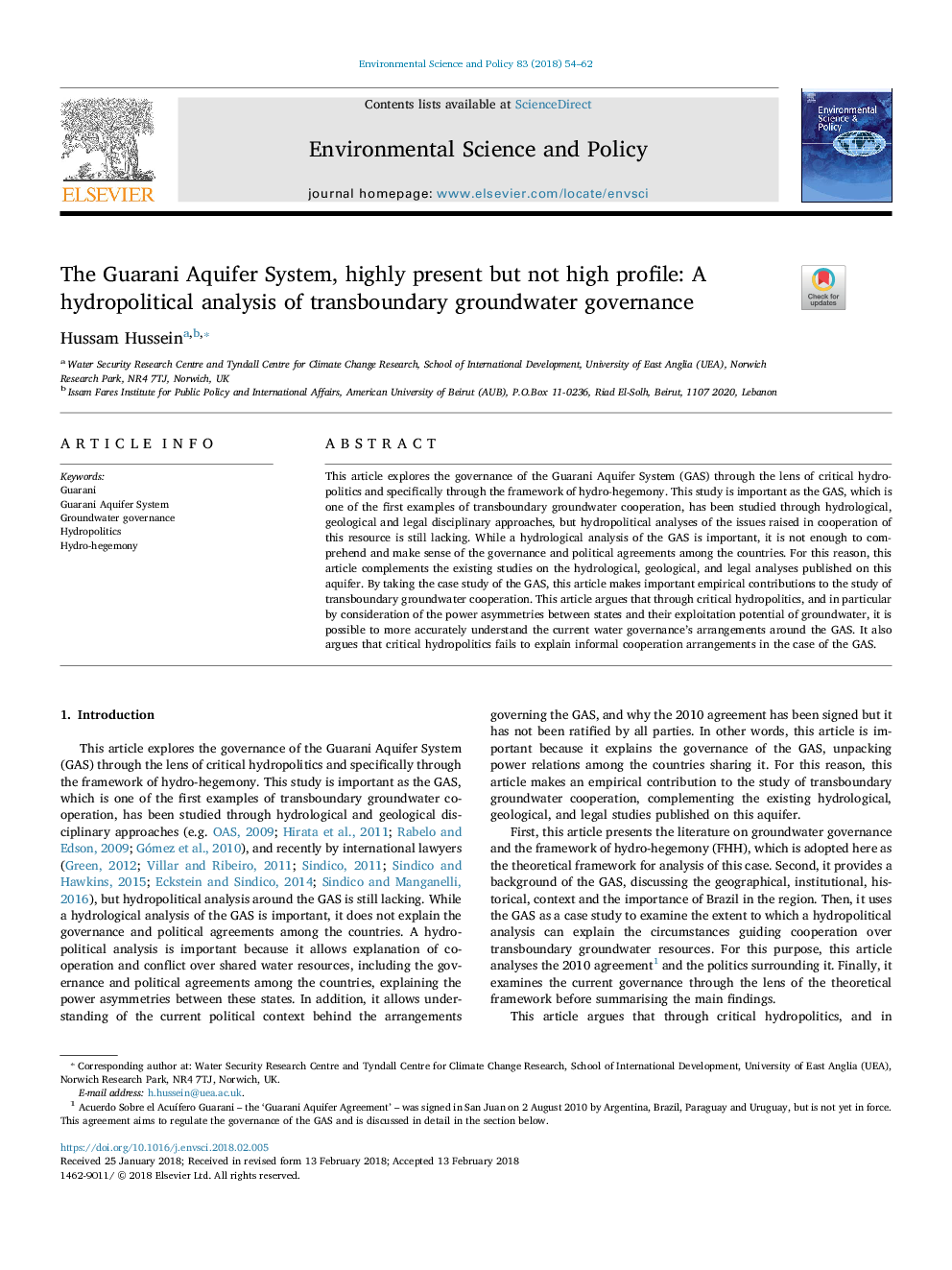ترجمه فارسی عنوان مقاله
سیستم آبرسانی گارانی، بسیار در حال حاضر، اما نه بالا مشخصات: تجزیه و تحلیل هیدرولیستی از نظارت بر آب های زیرزمینی در سطح بین المللی
عنوان انگلیسی
The Guarani Aquifer System, highly present but not high profile: A hydropolitical analysis of transboundary groundwater governance
| کد مقاله | سال انتشار | تعداد صفحات مقاله انگلیسی |
|---|---|---|
| 86316 | 2018 | 9 صفحه PDF |
منبع

Publisher : Elsevier - Science Direct (الزویر - ساینس دایرکت)
Journal : Environmental Science & Policy, Volume 83, May 2018, Pages 54-62
ترجمه کلمات کلیدی
گوارانی، سیستم آبرسانی گوارانی، حکومت آب زیرزمینی، هیدروپولتیک، هژمونی هیدروژنی،
کلمات کلیدی انگلیسی
Guarani; Guarani Aquifer System; Groundwater governance; Hydropolitics; Hydro-hegemony;

